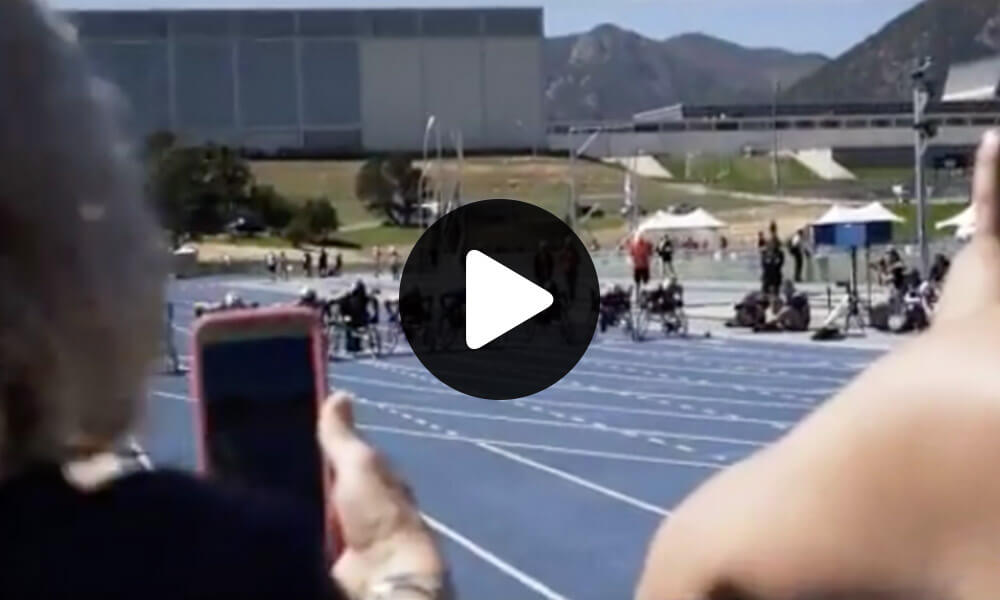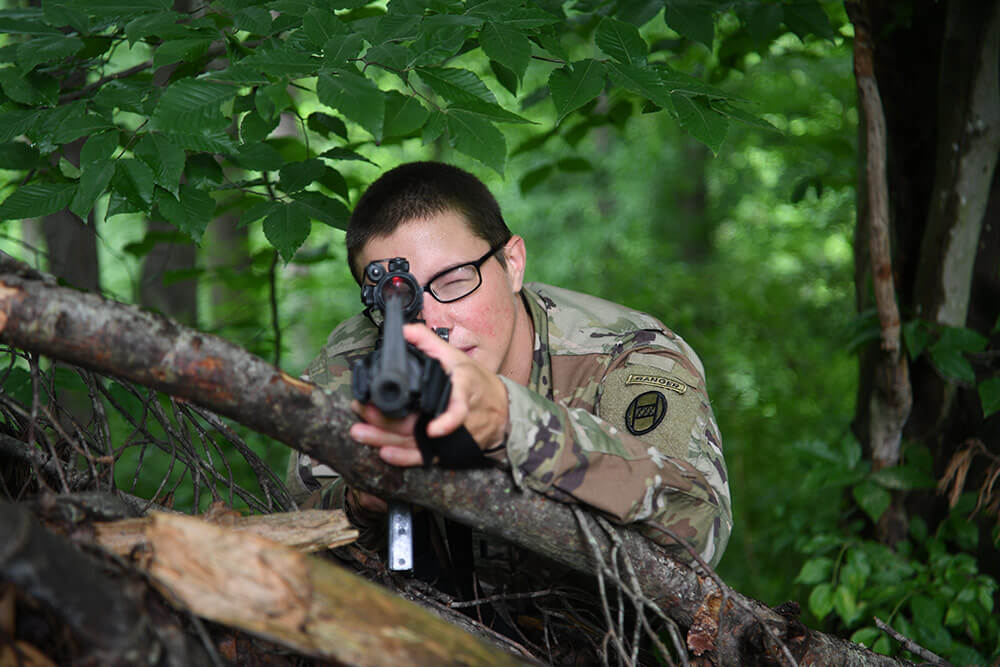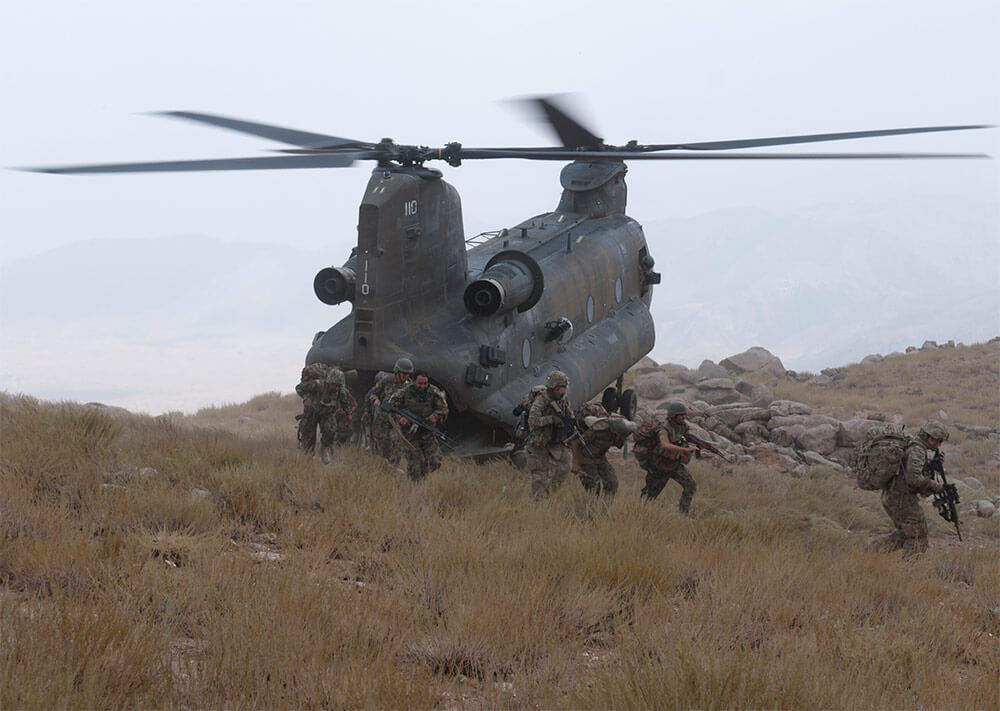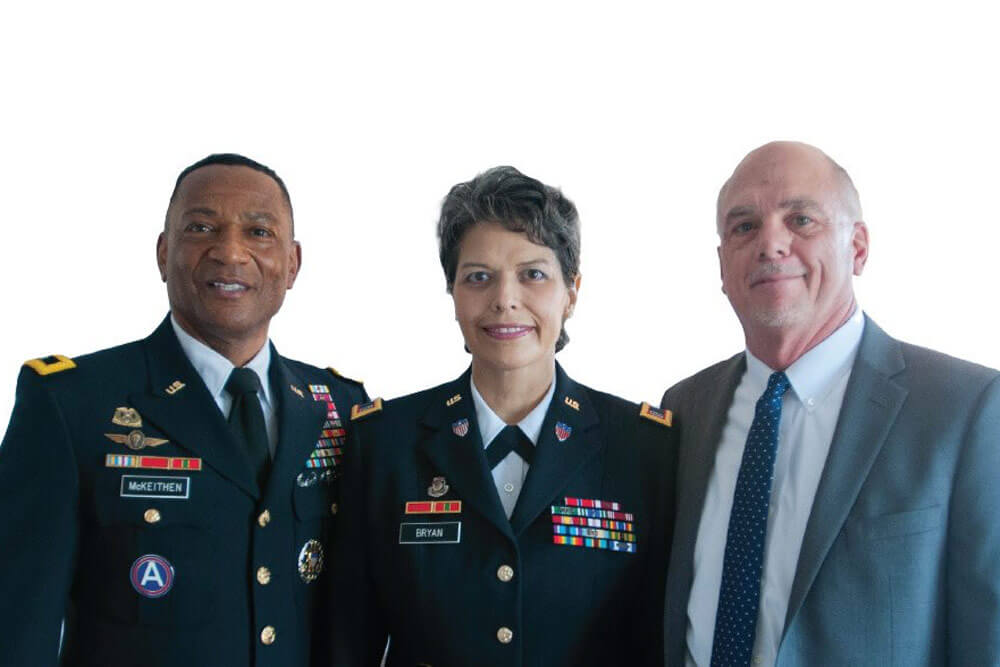Ohio Army Guard SGT Jonathan Weasner’s Special Forces career was cut short by injury, but that has not kept this Soldier from excelling and meeting his new life goals.
Like many Soldiers, SGT Weasner has felt pain – physical pain from a serious injury and the emotional pain involved in learning to deal with the reality of the injury. SGT Weasner had been in the Ohio Army National Guard four years, serving as an 11Bravo training to be an engineer when he was injured at Fort Bragg, North Carolina, while completing the Special Forces Qualification Course (SFQC).
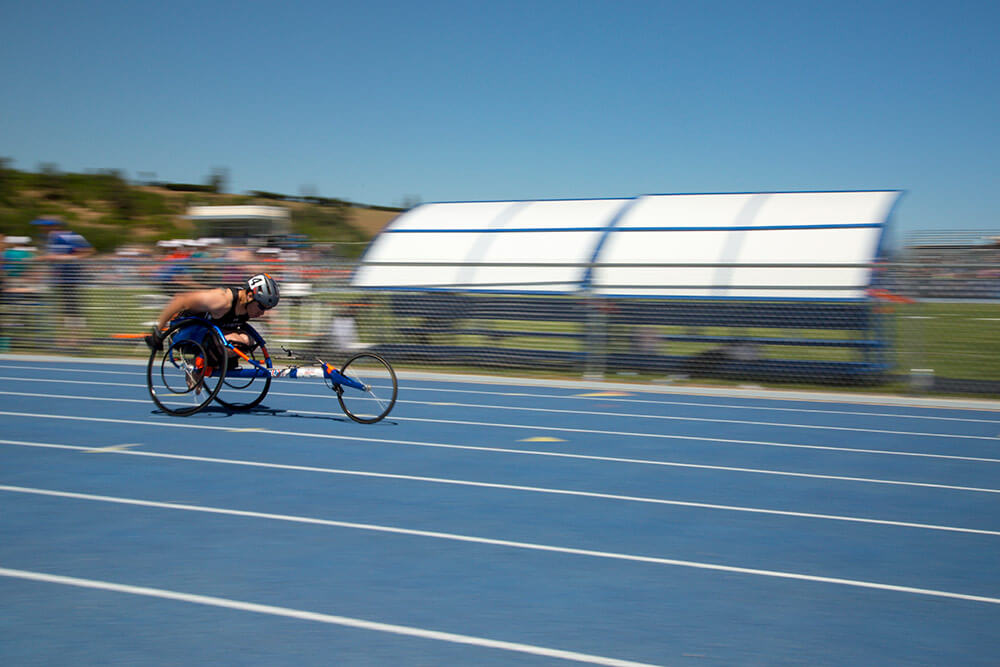
“I wish I could say it was one specific dramatic injury, but I think more or less it just happened over time and then it just gave out,” he said. “I tore my labrum in my right hip. My ball joint was turned into an oval joint. I started losing the feeling in my back and in my legs.”
SGT Weasner is now officially part of B Company, 219th Special Forces Group, Ohio Army National Guard, but was attached to the Warrior Transition Battalion (WTB) at Fort Campbell, Kentucky, after his injury.
WTBs support wounded, ill and injured (WII) Soldiers, across all three Department of Defense (DoD) Components, as they rehabilitate from their medical conditions. WTBs have a mission to transition Soldiers, through a comprehensive treatment plan, either back into the force or into the community as productive Veterans with dignity, respect and self-determination. WTBs offer a triad of squad leaders, case managers and primary care physicians who work together as part of an inter-disciplinary team that ensures advocacy for Soldiers and continuity of care.
“He’s been doing extremely well as a Soldier,” said LTC Shawn Butler, commander of the WTB at Fort Campbell. “He does a lot of handcycling and other activities of that nature. He is one of the [Soldiers] that sets the standard for others to follow.”
For wounded Soldiers, using fitness training as part of the rehabilitation process – for both physical and mental healing – is not uncommon. This was the case with SGT Weasner.
“It’s been up and down,” he said. “I just take all of it and I throw it into what I do. I burn it out. That’s my motivation. Every wheel I turn is just something I want to get rid of. It makes me happy at the end of the day.”
It took time for SGT Weasner to find happiness after first arriving at Fort Campbell’s WTB. He had just gone through major surgery, was in a wheelchair, and doctors had just told him that he may never run again. He loved to run, he said. He would ultimately be wheelchair-bound for months.
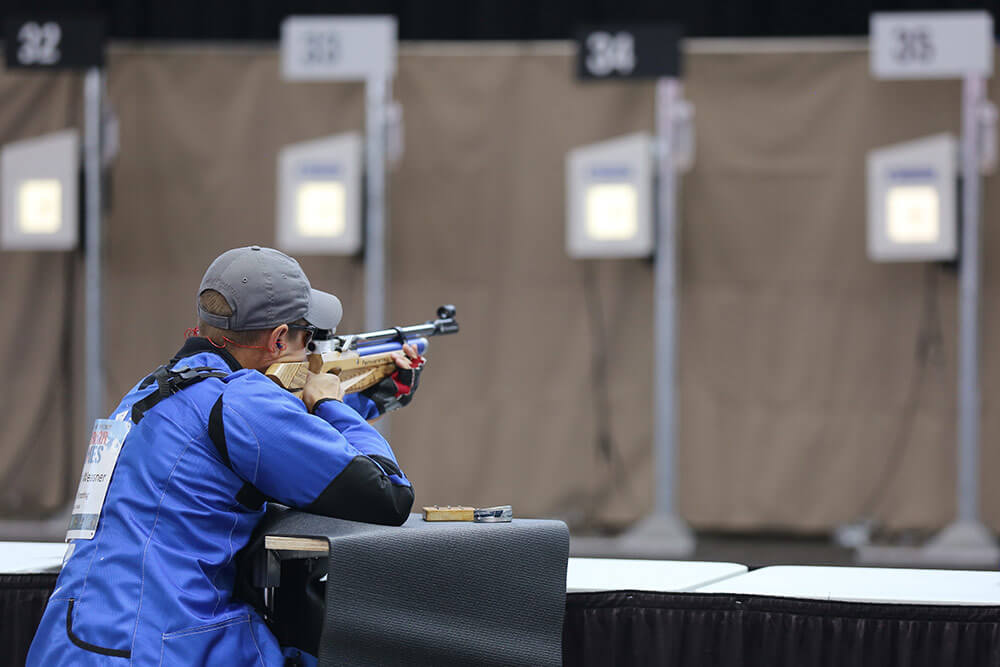
“Sitting around in a chair just isn’t fun,” he recalled. “I overheard a rumor that there’s this thing that goes on – Warrior Games. I was like, ‘Alright, where do I sign up?’”
SGT Weasner said he has been around athletics his whole life and, before joining the Guard, was a high school track coach for six years. Still an athlete, SGT Weasner retains that same competitive drive. He just excels at different sports now.
“It definitely opened my eyes to [see] there are other avenues,” SGT Weasner said. “You can race wheelchairs. You can race handcycles. You just do these modified sports and they are competitive. It might not be what everybody in the world knows, but there is a field out there – another community that likes guys like us.”
SGT Weasner’s former Special Forces Group supervisor and current-friend, retired MSG Ron Rinto, said he wasn’t surprised when he heard his former Soldier was entering the Warrior Games, or even when he heard that SGT Weasner took home medals. He said to be considered for the Special Forces, a Soldier has to be in the top one percent of people in the U.S. military – physically, mentally and emotionally.
“He’s a really good dude,” Rinto said of his friend. “Most people tuck their tail between their legs and walk away [with such an injury] – not Jon. He’s just one of those solid young men – one of those guys that’s driven to be competitive and succeed. This is the kind of guy you want to have your back.”
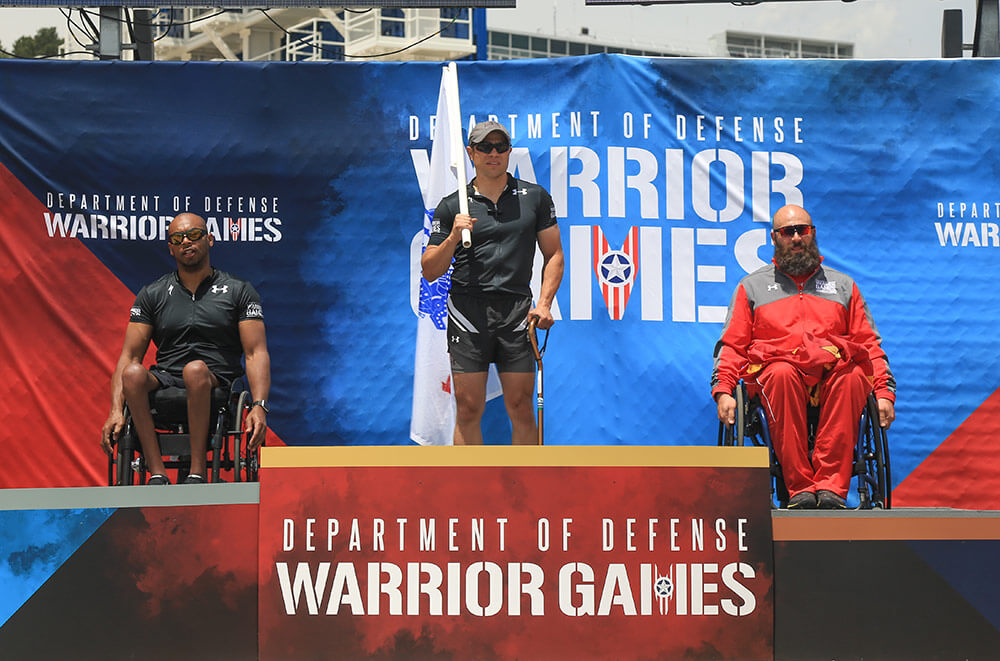
The first DoD Warrior Games were held in 2010. They were created as a way to enhance the recovery and rehabilitation of WII service members. Through the games, participants are exposed to adaptive sports. Adaptive sports and athletic reconditioning activities play a fundamental role in the successful recovery and reintegration of service members and Veterans.
Approximately 300 athletes participated in the 2018 competition. The events included archery, cycling, field (shot put and discus), indoor rowing, powerlifting, shooting, sitting volleyball, swimming, track and wheelchair basketball.
Once SGT Weasner had a new goal on which to focus, there was no stopping him. He pushed himself into training for the competition with a ferocious intensity.
Mondays and Wednesdays – his “light” days – he would cycle for an hour, usually between 7:00 and 8:00 in the morning. From there, it was to the track for wheelchair workouts. Later in the day, he would practice target shooting for an hour to an hour-and-a-half.
On Tuesdays and Thursdays, he would practice outdoor handcycling – riding for about 27 miles, he said. That’s an hour-and-a-half to two hours of riding. Weekend workouts depended on the weather. In good weather, he would cycle for a long ride. If the weather was bad, or he was hurting, he would take it easy on Friday and Saturday. Sundays were usually another cycling day.
He also had a weightlifting regimen. On light days, he would spend three hours in the gym. On heavy days, he spent five to six hours.
He continues with this regimen, even today. His friends and colleagues continue to be impressed.
“[We] ride bicycles here [at the WTB] every couple of days and he comes out with us,” LTC Butler said. “It is impressive when we go out on a 30-mile ride and he’s using a handcycle to complete that ride. He’s very physically fit. I think it’s outstanding. SGT Weasner has not let his limitations dictate what he can and can’t do.”
This past June, SGT Weasner made a stellar showing at the 2018 Warrior Games where he won six first place titles and placed in the top three in two other events. He also managed to set two new records while competing.
In track, under wheelchair racing classification 3.0, he won the 100-meter dash, the 200-meter dash – setting a Warrior Games record; the 400-meter dash, the 800-meter dash – setting another Warrior Games record; and the 1,500-meter race. In handcycling, under classification H5, he won first place in the time trials race and took second place in the road race. In the powerlifting 72K category, he took home the Bronze.
As with all athletes at multi-event competitions, not every event ended with SGT Weasner winning a medal. In the shooting competition, he made the semi-finals, but tied going into the final competition.
“My first shot, I ended up tying with a fellow,” SGT Weasner explained. “We had a shoot-off. He shot better than me, so I got bumped out at eighth place. It’s definitely a head game.”
One of the wheelchair races also presented an unexpected twist. The sprint normally has a three-part command to start the race – “on your mark,” “get set” and then the firing of the gun. However, in this particular race a new starting official emerged, and this official did not use the standard three-part command. Instead, he called “set” and then fired the pistol, SGT Weasner said.
“I was like, ‘Wait a second, everyone else is racing,’” SGT Weasner recalled. “Magically, I caught up to everyone and broke a record in the process. Though with some guys, you could not have overcome that [delay].”
Overall, SGT Weasner was pretty happy with his performance at the DoD Warrior Games. Though he expects to be leaving the Guard for civilian life, he said he is still pushing toward new goals. His next goal is to be accepted into the Invictus Games – which was started by Great Britain’s Prince Harry – and perhaps gaining a designation as a Paralympian.
After his time in the WTB, this highly motivated Soldier gained yet another reward that was largely due to his commitment to training and the rehabilitative process. Within a year of his injury and surgery, SGT Weasner is now walking again.
“I officially got out of my chair back in mid-November,” SGT Weasner said. “Now I just use a cane whenever I’m carrying anything on my back or if I am having a bad day. If I’m having a good day, I can just walk.”
Though SGT Weasner did not have the career he expected in the Army National Guard, he said he is grateful for his time in service.
“I’d say I tried everything I could,” he said reflecting back over his tenure. “I wish I had not gotten injured. It’s a ‘shoulda-woulda-coulda’ game. I met some really good guys and I stay in touch with them. I’m thankful for that. That’s probably my take-away from it – the guys that I met and the comradery.”
By Staff Writer Matthew Liptak
